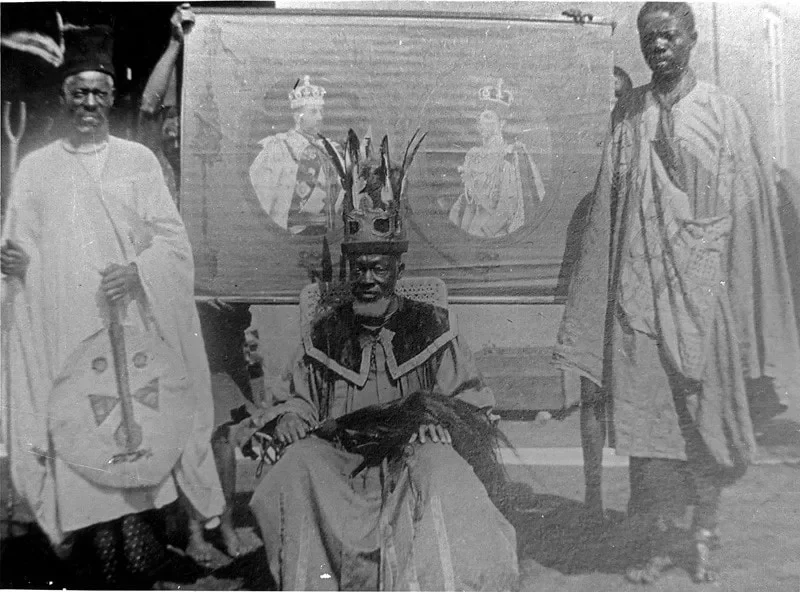The Secret of Ofo: How Igbo People Swore Truth Before the Gods
By: Chimdindu Ken-Anaukwu
Before contracts, police, or written oaths, the Igbo had Ofo, a staff that spoke louder than any lawyer.
When an elder lifted the Ofo to the sky and said, “Ofo ga-adi!” (justice will prevail), everyone listened. Lies trembled. The guilty hid. Because to lie before Ofo wasn’t just deceit; it was an invitation for the ancestors themselves to punish you.
Ofo was truth embodied. It wasn’t just wood; it was ancestral conscience made visible.
What Is Ofo? – Beyond Wood and Symbolism
Physically, the Ofo is a carved stick, often cut from the Detarium senegalense tree (ọ́jị ọfọ), sometimes decorated with cowries or marks of lineage. But its meaning runs deeper.
The Ofo represents:
Truth and justice (Eziokwu na ikpe ziri ezi).
Ancestral authority: only the morally upright could wield it.
Continuity: a reminder that the living and the dead share the same moral space.
In Igbo philosophy, Ofo is never separate from Ogu.
Ofo = the divine right to speak truth.
Ogu = the innocence that gives one that right.
When someone says, “Ọ bụ m nwere Ofo na Ogu”, they’re declaring moral purity: I stand with truth and justice.
Who Holds the Ofo? – Custodians of Truth
Not everyone could hold the Ofo.
Only elders or lineage heads (ndi isi obi) with proven integrity – men known for fairness, temperance, and wisdom – became custodians of Ofo.
A liar, thief, or corrupt person lost the right to hold or invoke it.
Because the Ofo “rejects” impurity. In many communities, if an elder wronged someone unjustly, the Ofo in his house “died”, believed to have lost its sacred essence.
To inherit Ofo was both an honor and a burden: you carried your ancestors’ truth in your hands.
The Ofo in Justice and Dispute Resolution
When two parties had a land dispute, the case often ended not in court, but under the watchful gaze of Ofo.
The elder or priest (Dibia Ofo) would present it, invoke the ancestors, and each side would swear before it.
The one who lied risked illness, misfortune, or death because the ancestors abhorred deceit.
Common invocations included:
“Ofo ga-adi!” — Justice will stand.
“Ka Ofo gbaghara gị!” — May Ofo judge you.
“Ị gwaa eziokwu n’iru Ofo.” — Speak the truth before Ofo.
This wasn’t superstition. It was a justice system rooted in conscience, ensuring that fear of ancestral wrath upheld honesty better than any written law.
Ofo and Colonial Disruption
When British colonizers imposed Western courts, they dismissed Ofo as “idol worship.” Missionaries labeled it pagan. But what they didn’t see was that Ofo had been the moral constitution of the Igbo world.
Where colonial law enforced obedience through punishment, Ofo preserved justice through moral integrity.
One relied on fear of the government.
The other relied on fear of one’s ancestors.
By replacing Ofo with Western legal structures, much of that communal accountability was lost; truth became negotiable, and morality, privatized.
The Modern Meaning – Is Ofo Still Alive?
Today, Ofo still survives quietly.
Some traditional rulers and custodians keep it as a symbol of legitimacy in chieftaincy and spiritual rites. In certain homes, it stands in ancestral shrines as a reminder that truth still matters.
Modern Igbo thinkers now reinterpret Ofo as a philosophy of ethics, a call to moral clarity in politics, governance, and leadership.
“Ofo ga-adi,” they still say truth will always stand.
Even if the physical staff is fading, the principle endures wherever honesty still commands respect.
Closing Thoughts – Ọfọ na Ogu ga-adi
In Igbo life, justice isn’t an institution. It’s a living force.
Ofo teaches that truth isn’t just spoken; it’s borne.
To understand Ofo is to understand what holds the Igbo world together:
the belief that truth is sacred, and no lie goes unjudged.
May Ofo na Ogu continue to stand in our words, our deeds, and our hearts.



